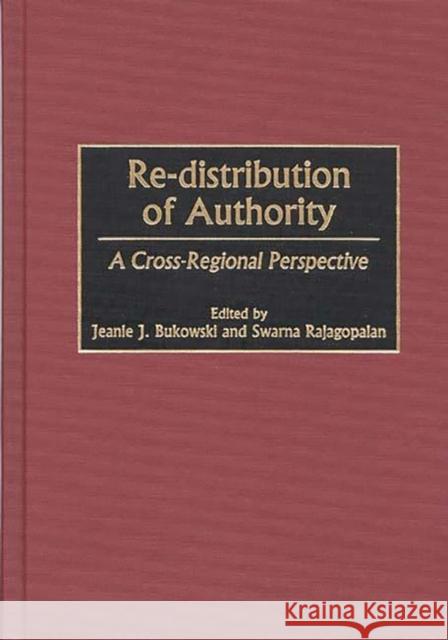Re-Distribution of Authority: A Cross-Regional Perspective » książka
Re-Distribution of Authority: A Cross-Regional Perspective
ISBN-13: 9780275963774 / Angielski / Twarda / 2000 / 216 str.
Bukowski, Rajagopalan and their contributors seek to cross both analytical and geographic boundaries in the study of why and how authority shifts both within and beyond the modern nation-state. They develop a conceptualization of the re-distribution of authority, that is, when the capacity of governmental and societal units involved in carrying out the tasks and responsibilities of governance change over time, relative to each other. They argue that this is a more comprehensive alternative to extant conceptualizations used to study the shifting of authority, such as decentralization, regionalism, or federalism. Nine diverse cases are then presented: Pakistan, India, Sri Lanka, the United States, Russia, Spain, Portugal, Senegal, and South Africa. Each case addresses the questions: Which are the factors that explain the re-distribution of authority? Under what conditions are some of these factors more important than others?
Despite the diversity of the cases in both geographic location and levels of economic and political development, four major explanatory factors emerge as common across all nine cases: identity-related claims, economic imperatives, considerations of administrative efficiency, and political agency. Moreover, discerning the complex interaction of these factors is necessary in understanding the re-distribution of authority in both its centralizing and decentralizing forms, across all levels of governance. Of particular interest to scholars, students, and policy researchers involved with international relations, comparative politics, public administration, political development, and state formation, and ethnonational politics.











